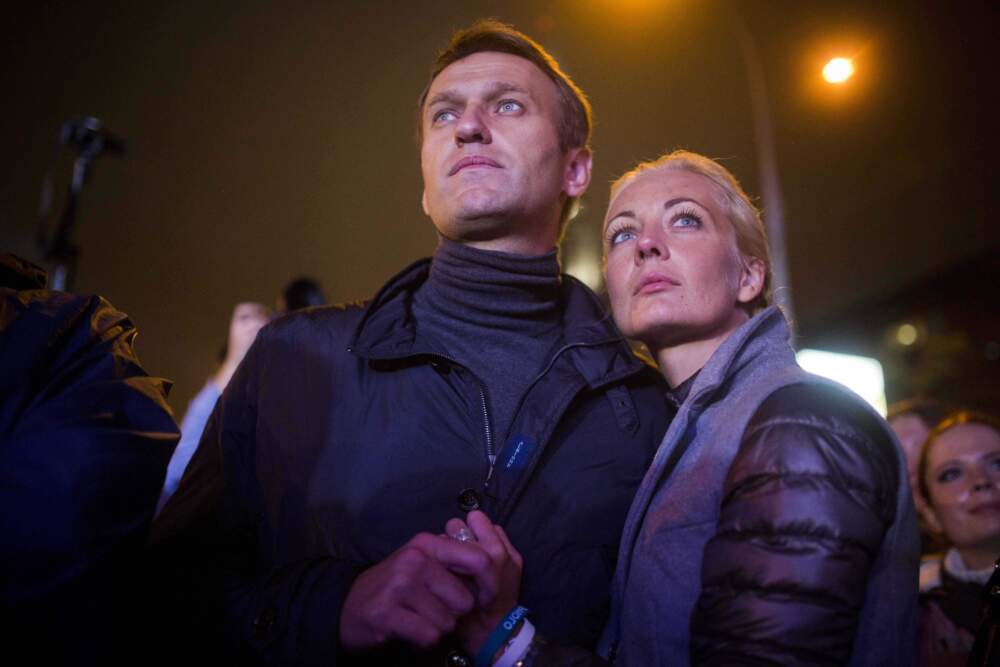Advertisement
After Russian opposition leader Alexei Navalny's death, his widow will take over his work
Resume
Three days after learning of the death of her husband, Alexei Navalny, Yulia Navalnaya announced she would take over his mission.
On Navalny’s YouTube channel, Navalnaya told Russian people that she stands on their side. “I know that you have lost as much as I have,” she said.
Russian-American journalist Masha Gessen says Navalnaya is unequivocally the best person to carry her husband’s legacy.
“She shares her husband's political values, [and] his unbendable will,” Gessen says. “She's an extraordinary political speaker.”
Russian authorities said on Friday that Navalny lost consciousness after taking a walk in the Arctic prison where he was held. The news rattled leaders around the world.
But Gessen says the reach of Russian President Vladimir Putin’s repressive regime is nothing new. Gessen left Russia in 2013 when it became too dangerous for their family to live there.
In their latest piece for The New Yorker, Gessen describes Navalny as “Putin's most formidable opponent.”
“Navalny definitely built the closest thing to an organized opposition movement in Russia,” they say, “and that is why he was Putin's most frightening opponent. He had the ability to mobilize people. He had the ability to bring people out into the streets.”
Gessen says at this point, there is no danger of over-praising the man.
“It's crazy to say this, but I don't think there's any risk of idealizing him,” they say. “By the time he died and many years before that, he was pretty much ideal.”
Gessen says Navalny’s work is likely to have a lasting impact, seen through Russian people pouring out onto the streets to pay tribute to him.
“We're talking about tens of thousands, possibly hundreds of thousands of people who came out into the streets to lay flowers, every single one of them risking arrest and imprisonment,“ they say. “Think about it: hundreds of thousands of people willing to risk their very lives to pay tribute to Navalny. That is testimony to his continued political power, even from the grave.”
In 2020, Navalny was poisoned and fell ill. He was hospitalized in Germany and put into a medically induced coma. Gessen says the fact that Navalny still returned to Russia after he was almost killed not only shows his bravery, but also his commitment to the opposition movement.
“I think that the prospect of staying in exile and becoming politically irrelevant,” Gessen says, “not being directly involved in every single day of organizing and investigating and talking to people, I think the prospect was terrifying to him.”
However, Navalny couldn’t have known that Russia’s war against Ukraine would force the entire opposition movement into exile, its center of gravity moved abroad.
When Navalny returned to Russia in 2021, Russian authorities arrested him. Gessen says Navalny saw it coming and even suspected he could die in prison.
“I think he was hoping that there was a good chance that he would outlive Putin even in prison, that he would be Russia's Nelson Mandela,” Gessen says. “That was his role model: stay in prison, show your commitment to the cause, and emerge victorious eventually. But he also knew there was a good chance he was going to be killed. And what he said was, ‘Don't let that stop you, if I am killed.’ He kept saying, ‘I am not afraid.’”
This segment aired on February 19, 2024.